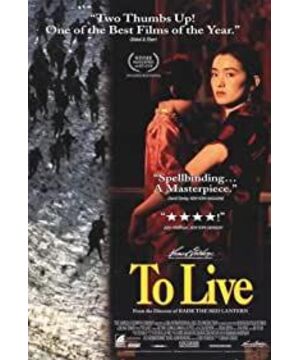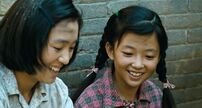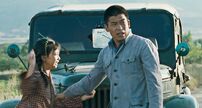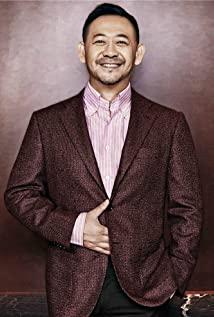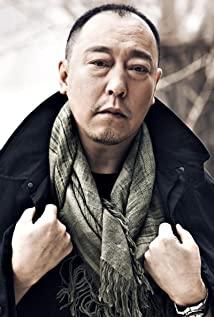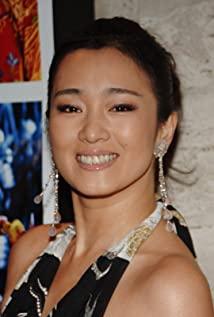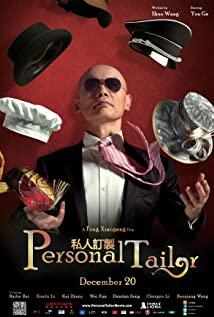Zhang Yimou is a director who can show his personality when he encounters a good script (regardless of the influence of this personality on the work), and the addition of Yu Hua can also ensure that the theme does not deviate to the greatest extent. Of course, we must also consider The censorship criteria of the State Administration of Radio, Film and Television (in fact, even if Yu Hua made such a big compromise to change the ending, the film still failed the censorship because of "defaming the socialist legal system and the political party's ability to govern"), look at the film from the above points The adaptation of the film is basically successful, and it has also been recognized by the industry (won the Cannes Film Festival Jury Award, the American Film Critics Association Award for Best Foreign Language Film, the British Academy Film Award for Best Non-English Dialogue Film and many other heavyweight awards) .
The following points out the differences between the film and the novel in several aspects:
1. Theme
The tone of the novel is undoubtedly heavy and dark, which is determined by the era where the protagonist lives, and is also what the author wants to express "people and destiny" relationship” is determined by the characteristics of the subject. Yu Hua said: "'Alive' tells the story of the friendship between a man and his destiny. This is the most touching friendship. They are grateful to each other and hate each other at the same time. "But after I read it, I didn't think that the "friendship" between blessings and fate was covered under this icy sky. What I saw was clearly a struggle, a person's love and warmth that should belong to him. , and the inescapable struggle with what fate has done. The tragedy of this story is not that man loses, as in the classical heroic epics, but that the battle—for man and fate—has no winner at all.
And movies obviously can't be made like this, a movie with a dark theme is impossible to pass censorship in China. Therefore, in the movie, the protagonists represented by Fugui are not resigned to all suffering like in the novel, but are always actively seeking change. The final ending is also full of warmth. Although the Fugui family has gone through hardships, they have finally achieved the life they have been seeking. In this sense, they have actually defeated their fate.
The "destiny" that can act as the protagonist in the novel is covered with a thick political cloak in the film, which is obviously influenced by Zhang Yimou's "Cultural Revolution complex", and a large number of scenes of the Cultural Revolution are added to the film - no It's just a background depiction, but directly affects the development of the plot - the political sensitivity of the characters has also been greatly improved compared to the almost out-of-the-world attitudes in the novel. Judging from the final effect, this adaptation is a success. It not only reflects Zhang Yimou's strong personal style, but also gives the story a new spiritual core.
2. Character image
1.
The image of Fugui in Fugui's film has obvious Ge You's characteristics, or in other words, all the changes are based on Ge You's characteristics. It is a feature of the film that the performer influences the character. Ge You accomplished his task brilliantly, and he endowed the image of Fugui with a new soul.
Specifically, there are the following differences:
(1) Fugui in the novel is ignorant and ignorant. After bankruptcy, he can only farm for a living. In the movie, he is good at singing shadow puppets. After bankruptcy, he did small business and sang shadow puppets for a living.
(2) In the novel, Fugui before bankruptcy is domineering and grotesque. In the movie, Fugui's rebelliousness is weakened, and he just fights with his father a few words, and does not scold him.
(3) The relationship between husband and wife is strengthened in the movie. Fugui only gambles, does not prostitute, and has no domestic violence. He has become a model husband who has shortcomings but loves his wife.
(4) The movie removes the clue of the contradiction between Fugui and her husband.
(5) In the novel, Fugui is a person who will never resist, and is resigned to all burdens. The most obvious point is that when he lost his family property to Long Er, there was no strong reaction in the novel. In the movie, Ge You's personality image was strengthened, and he started to go crazy when he learned that his family property was floating.
(6) In the novel, Fugui is an authentic ignorant peasant. In the movie, he became a statesman, and he has a very high political sensitivity, including scolding his son for the phrase "destroying the canteen is destroying the Great Leap Forward", and sending his son to a dead end in order to show that he is "not backward".
2. Jiazhen
I personally am very dissatisfied with the adaptation of Jiazhen's image, this is not Jiazhen, this is Gong Li.
Although Jiazhen was not born into a famous family, she was also a lady from a standard feudal society. She had a certain cultivation (not knowledge) and temperament. At least she knew and abide by the three obediences and four virtues. method can be seen.
But in the movie, Gong Li turned the virtuous and virtuous ladies in the novel into a grumpy woman with a philistine face. She completely destroyed the temperament of the novel's image. Jiazhen is no longer a lady of the family, nor is she a little girl, but vulgar.
Zhang Yimou added a lot of scenes to Gong Li, but completely abandoned the real cuteness of this image. Clever persuasion turned into nagging, forcibly being pulled home turned into voluntarily leaving, and Fengxia was not left behind. She even instructed her son to play tricks on her husband. I'm not saying this kind of adaptation is boring and pointless, but it can't be something a feudal lady can do.
In addition, in the novel, Jiazhen is a strong, even sacred woman, her cultivation and character, her unyielding and optimistic, are the most valuable qualities of Chinese women. But in the movie, I can't see these shining points at all. Without the oppression of illness, I can't show any unyielding and optimistic, and in those "common sense" nagging and out of control, I can't see any cultivation and optimism at all. character.
Male writers tend to hide a part of their character—and often the good part—in their female characters, such as Cao Xueqin. I believe Jiazhen also shares part of Yu Hua's soul. But in the hands of Zhang Yimou and Gong Li, Jiazhen was reduced to a petty townsman, a tasteless petty townsman exuding a local flavor. Maybe such a talent would be a better match for Fugui, but that's not interesting at all.
3. In Youqing
's novels, Youqing is a victim of ignorance, while in the film he is a victim of politics.
Since the whole background of the movie was changed from the countryside to the town, the scene of rural life was changed accordingly to the scene of urban life, and this change was mainly reflected by Youqing. The scene of cauldron rice, etc.
4. Chunsheng
in the movie Chunsheng combines the two images of Chunsheng and Changgen in the novel.
5.
The change of the dragon two is mainly to adapt to the change of the background.
In the novel, Long Er's death was for the land, and the movie was for the house, and the house was set on fire.
Long Er, as the shadow puppet master, led to the shadow puppet, a clue that runs through the film.
6. Wan
Erxi turned her head into a lame, which is more conducive to the performance of the movie and the performance of the actors.
Wan Erxi's identity has also changed, from a migrant worker at the bottom to a factory worker. The urban-rural conflict in the novel is also weakened.
7. In the father's
novel, Fugui's father beats and scolds Fugui on weekdays, but when Fugui loses all his family property, he becomes calm and self-reflection is more important than self-blame. The setting in the movie is the opposite: just get pissed off. This makes the film more compact, but the richness of the characters is reduced. This image is transformed from a three-dimensional person into a concept.
8. Mother
In order to make room for Gong Li, the image of her mother is almost non-existent.
9. The village chief
in the village chief novel is a gray complex image. But the film simplifies him as a wronged "loyal communist fighter". The reason for the adjustment has changed from the "weird" in the novel because there is no, and it has become vague. It's easier for the audience to accept, but the depth is diminished, and, again, that's the word -- no fun.
10. This image was deleted from Mr. Shen's
movie.
11. The reactionary academic authority
found a doctor from the bullpen but was held unconscious. This is the highlight of not many movie adaptations. Zhang Yimou is good at expressing tragedy with comedy.
3. Storyline
The similarities and differences in the plot of the characters have been mentioned above. Only two changes in background and clues are mentioned here.
1. The background
movie has changed the background from the remote, ignorant and isolated village in the novel to a town that Zhang Yimou is more familiar with and more convenient for the movie to express.
2. Clues
(1) The novel uses the method of memory and storytelling to connect the plots spanning decades. This method is obviously difficult to grasp in the film, so Zhang Yimou used his best and most lazy method—— Make a slideshow. This technique was carried forward to the extreme in "Love of the Hawthorn Tree" and was unanimously ridiculed both inside and outside the industry.
(2) There is an image throughout the movie - shadow play, which does not exist in the novel, but obviously the effect of shadow play is more suitable for film performance than the land and tears in the novel.
Shadow puppets also symbolize the fate of Fugui to a large extent. After the shadow puppets were burned, Fugui, who had been actively fighting against fate, stopped resisting. Finally, the new life stored in the shadow puppet box also symbolizes the inheritance of life.
(3) An image that accompanies Youqing in the novel—sheep—was abandoned due to the weakening of Youqing’s image in the movie.
(4) There is a fatalistic image in the novel—the hospital, where almost everyone died. But it is greatly weakened in the movie.
(5) Yu Hua emphasized the importance of the image of tears in the preface of the Korean version, but it is difficult to show this in the film.
(6)
Fourth, some other details
1. In the novel, Fugui was suddenly arrested as a strong man on the way to buy medicine for his mother (and eventually led to the death of his mother). In the movie, he was caught while singing shadow puppets.
2. The movie reduces the cruelty of war.
3. In the novel, Fugui has no concept of the Communist Army. However, the novel compares the performance of the Kuomintang and Communist officers. In the movie, Fugui and Chunsheng perform shadow puppets for the Communist army.
4. The stupid steelmaking in the novel has become the real steelmaking in the movie, and the purpose has changed from grabbing success to liberating Taiwan.
5. Youqing's cause of death. In the novel, the blood was drained to save the county magistrate's woman. In the movie, the district magistrate bumped his car into a wall and smashed to death.
6. A section of three years of natural disasters was also omitted.
7. The wedding in the countryside became a revolutionary display
. After Fengxia died, she should have died, but she was still alive, and her body was so good.
9. The name of the bitter root has become a steamed bun.
10. In the novel, all but Fugui are dead. Only You Qing and Fengxia died in the movie.
View more about To Live reviews


